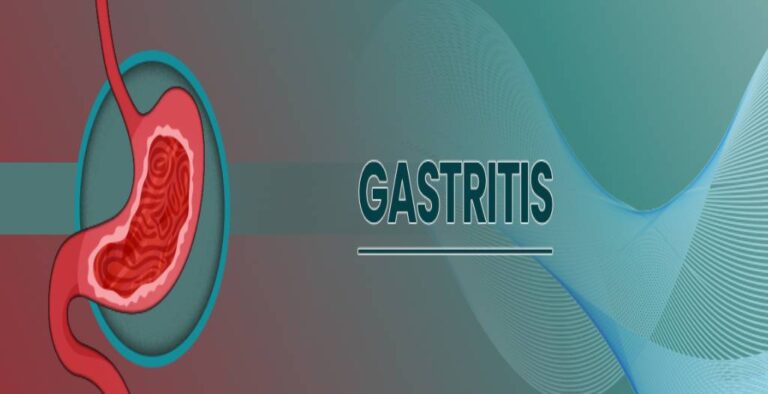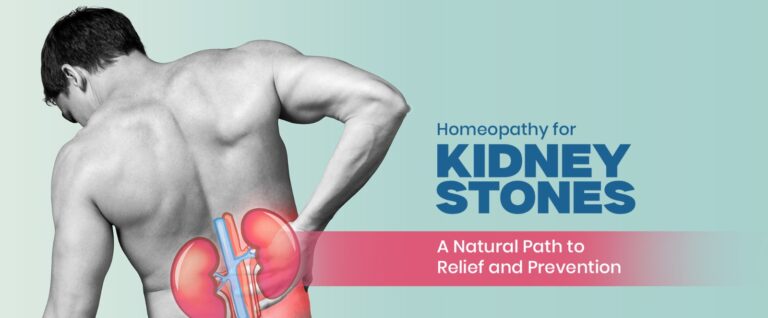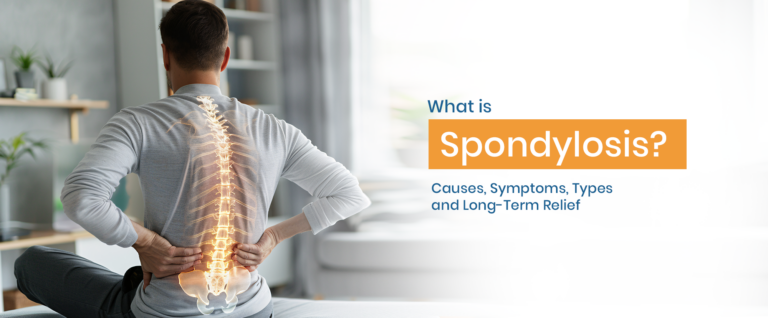Gastritis symptoms refer to the inflammation that occurs in the soft mucus lining of the stomach. As a result of this inflammation, the patient may experience symptoms of stomach pain, nausea, vomiting, indigestion, etc. While gastritis, in most cases, goes away on its own without any treatment, chronic gastritis may require medical attention. In this blog, we will be learning more about gastritis, its prevalence, symptoms, causes, risk factors, diagnosis, treatments, complications, prevention, and much more. So, stay with us till the end to learn about gastritis.
What is Gastritis?
Gastritis is a condition in which inflammation in the stomach lining occurs. The stomach lining, which is a soft tissue also called mucosa, protects our stomach from microorganisms, acids, and enzymes that pass through it daily. Gastritis can occur due to various reasons and can cause noticeable symptoms.
The stomach lining can become irritated or inflamed for various reasons, leading to symptoms of pain and discomfort. In most cases, gastritis is caused as a result of a bacterial infection in the stomach. When the protective lining of the stomach gets weak, the digestive juices may damage it, thereby causing inflammation.
Prevalence of Gastritis:
A study conducted in 2021 revealed that 50.8% of the population globally in developing countries suffer from gastritis. It also showed that gastritis was seen more in men compared to women and that it remains a major health problem.
Different types of Gastritis:
There are two main types of gastritis. These two types include the following,
Acute gastritis:
It refers to the sudden swelling and inflammation occurring in the stomach. Acute gastritis can cause severe pain that is usually temporary and lasts for shorter periods. It may be caused by bacteria or viruses, an injury, or due to ingestion of irritants such as spicy foods, NSAIDs, or alcohol.
Chronic gastritis:
It refers to gastritis that is not noticeable at all times, is long term and develops gradually over the years. In most instances, chronic gastritis occurs due to the presence of another chronic health condition. It may occur due to bacterial infection, radiation, long-term alcohol consumption, diabetes, bile reflux, drug use, weakened immune system, etc.
There are also two other types of gastritis. They include erosive gastritis and non-erosive gastritis.
Erosive gastritis:
This type of gastritis occurs when there is erosion of the gastric mucosa that causes damage to the mucosal defenses. It is usually acute and may cause bleeding.
Non-erosive gastritis:
This type of gastroenteritis refers to the one that is not erosive to the mucosal lining in the stomach. However, it can cause symptoms such as irritation and redness of the stomach lining.
Depending on its cause, gastritis may be called by specific names. Some of these include the following,
- Autoimmune gastritis
- Stress-induced gastritis
- Infectious gastritis
- Alcohol-induced gastritis
- Eosinophilic gastritis
- Drug-induced gastritis
Symptoms of Gastritis:
The symptoms of gastritis may vary from one individual to another. In many cases, gastritis may not cause any visible symptoms. However, upon becoming noticeable, it may indicate that the gastritis is either severe or has been there in the patient for a very long time. The commonly occurring symptoms of gastritis may include the following.
- Severe stomach pain
- Indigestion
- Shortness of breath
- Gnawing in the upper belly, which may improve or worsen after eating
- A feeling of fullness after eating
- Nausea and vomiting
- Loss of appetite
- Hiccups
- Bloating
- Foul smelling bowels
If your gastritis is erosive, then you may experience the following symptoms,
- Tarry, black stools
- Blood in vomit or material that appears like coffee grounds
When to show a doctor?
See your doctor urgently if you experience any of the below-given symptoms,
- Rapid heartbeats
- Shortness of breath
- Profuse sweating
- A large amount of yellowish or green-colored vomit
- Bloody or black-colored bowels
- Severe abdominal pain accompanied by fever
- Blood in your vomit
- Dizziness
- Fainting
- Persistent indigestion for longer than a week
Causes of Gastritis:
Gastritis occurs when the stomach lining weakens and becomes damaged. Due to the damaged stomach lining, the stomach becomes more prone to getting inflamed. The various causes of gastritis include the following,
H. Pylori Bacteria
One of the most common reasons for gastritis is H. Pylori bacteria infection. H.Pylori is one of the most commonly occurring bacterial infections affecting individuals globally. In some people, H.Pylori can cause gastritis and other upper intestinal diseases as well.
Using irritating substances
Prolonged use of substances that can irritate the stomach lining is also a common cause of gastritis. Long-term Long-term use of pain relievers or non-steroidal anti-inflammatory drugs (NSAIDs) can lead to both acute and chronic gastritis. Consuming pain relievers or NSAIDs too much can cause significant damage to the stomach lining.
Apart from these medications, chronic consumption of alcohol can also irritate and break down the stomach lining. Thus, the stomach lining becomes more prone to damage by the digestive juices, which can lead to gastritis. Using recreational drugs can also lead to the development of gastritis.
Damage to the stomach lining
Any physical damage or trauma to the stomach lining can also cause gastritis. For example, if you’ve undergone surgery to remove any part of the stomach, then you may get post-gastrectomy gastritis. Stress due to injury, burns, or infections may also cause the person to develop gastritis.
Having certain autoimmune conditions
Certain autoimmune conditions can lead to inflammation. Due to an autoimmune condition, the body may attack its own cells by mistake, thereby leading to gastritis.
Cancer treatment
Cancer treatments can also cause significant damage to the mucus lining of the stomach. These treatments include radiation therapy and chemotherapy. Damaged mucus lining becomes more vulnerable to developing gastritis.
Other infections
Infections caused by viruses and fungi can also lead to gastritis. This can happen specifically more in people having long term diseases or immune conditions.
Allergic reaction
Certain individuals may experience gastroenteritis due to an allergic reaction. This type of gastritis is also known as Eosinophilic gastritis.
Severe bile reflux
Individuals having severe bile reflux, where the bile keeps backing up in the stomach and food pipe, can also cause gastritis.
Having certain conditions
Gastritis may be associated with other health conditions such as Crohn’s disease, parasitic infections, celiac disease, sarcoidosis, and AIDS.
Risk factors of Gastritis:
Certain individuals are at a high risk of developing gastritis. There are various health factors and lifestyle factors that affect the stomach lining and can make a person more prone to developing gastritis. The various risk factors of gastritis include the following,
- Old Age
- Having a compromised immune system
- High levels of stress
- Smoking
- Consuming more amount of alcohol
- Drug abuse
- Having vitamin B12 deficiency
- Having HIV infection
- Prolonged use of NSAIDs, prescription drugs, potassium supplements, or iron supplements
- Exposure to radiation
- A history of severe vomiting
- Having tuberculosis
- Having syphilis
- Eating food or drinking water contaminated by H.Pylori bacteria
- Having certain digestive disorders
Diagnoses of Gastritis:
Before performing any diagnostic test, your doctor will make you undergo a thorough physical examination and ask you about the symptoms you are experiencing. Your doctor will also ask you about your family history of gastritis and may conduct tests to check for H. Pylori infection. In addition to a thorough symptomatic and physical examination, your physician or doctor may perform the following diagnostic test to diagnose gastritis,
Blood test:
Your physician or doctor may order a complete blood test to check your blood for the presence of H. Pylori bacteria that may be causing gastritis. Additionally, blood tests may also be conducted to check for signs of viral and fungal infections. Blood tests may also be done to check for anemia.
Stool sample:
Stool tests to check if you are infected by stomach bacteria that may be causing gastritis. In a stool test, a small sample of the stool is collected and sent to a laboratory to check for signs of bacteria. Stool tests can also be conducted to find blood in the stool, which may again be a sign of gastritis if you are experiencing bleeding.
Breath test:
In a breath test, the breath is collected to check for signs of stomach bacteria causing gastritis.
Upper GI (gastrointestinal) series:
Upper GI series involves getting X-ray images of the upper digestive tract, after you have swallowed a barium solution. The Barium Solution coats your upper organs and makes the problematic area visible on X-rays. As a result of the barium solution, the erosion in the stomach lining becomes visible, making it easy for your doctor to diagnose gastritis.
Upper endoscopy:
An upper endoscopy test helps check for signs of inflammation in the stomach, esophagus, and duodenum. In an upper endoscopy, a thin, lighted tube fitted with a camera called an endoscope is used. This endoscope is inserted into the upper GI tract through the mouth and throat. The doctor moves the endoscope around the GI tract to get a closer look at the organs and check for erosion or inflammation. During an endoscopy, the doctor may also perform a biopsy, a procedure where a small sample of tissue of the organ being checked is extracted.
In some cases, the doctor may also perform tests such as electrocardiography, liver function test, pregnancy test, gallbladder function test, kidney function test, and pancreas function test.
Treatments for Gastritis:
Treatment given for gastritis depends upon the cause of the problem, in patients experiencing gastritis due to the use of medications. Some of these medicines include non-steroidal anti-inflammatory drugs (NSAIDs). Avoiding the use of those drugs can help relieve the symptoms. The various other medications available for treating gastritis may include the following,
- Antibiotics to treat the bacteria causing gastritis
- Proton pump inhibitors to block the acid production in the stomach
- Antacids to neutralize the acid present in the stomach
- H2 blockers to decrease the production of acid
- Medications for nausea and vomiting
Homeopathy treatment for Gastritis:
Homeopathy treatments are being widely chosen by many patients due to their various advantages. Many individuals choose homeopathy for gastritis as it treats the condition effectively with minimal to no side effects. These Homeopathy Treatment For gastritis are safe, effective, and non-invasive.
Homeopathy remedies for gastritis help in the effective management of gastritis and its symptoms experienced in both acute and chronic cases. Homeopathy medicines can be taken by people of all ages as it is safer and has very less incidences of side effects. These medicines work by reducing the inflammation occurring in the stomach lining, thereby reducing the symptoms of gastritis. Homeopathic medicines also work by preventing sores and ulcers from developing in the stomach lining.
At Dr Care Homeopathy, we have a team of trained and skilled homeopathic doctors with years of experience in providing the best homeopathic treatments for various conditions, including gastritis. At Dr Care Homeopathy, our homeopathic doctors specialize in providing accurate diagnoses of your condition. This helps us deliver personalized treatment solutions to ensure you receive the finest of homeopathic treatment and care.
We understand the distress you experience with gastritis diagnosis as it interferes with your everyday life. Hence, our team of expert homeopathic doctors is focused on providing the best personalized Homeopathy Treatment For gastritis to you. We aim to help you find the right root cause of your health conditions and eliminate them from the root to make sure you live a healthy life.
Dr Care Homeopathy doctors are experts with years of experience and training in providing the best holistic approaches to our patients. With our team, your health is in the best hands. Our homeopathic experts will help you find the cause of your condition and target it the right way to not only provide you with symptomatic relief but also enhance the quality of your life.
Home remedies for Gastritis:
Various home remedies can help gastritis and relieve its symptoms. Some of the home remedies that can help you manage gastritis at home include the following,
An anti-inflammatory diet:
The diet you eat can also activate or worsen your gastritis. Hence, it is important to eat an anti-inflammatory diet that reduces your inflammation and relieves the irritation in the stomach lining. To relieve inflammation of the stomach lining, it is important to avoid food that causes inflammation, such as dairy products, sugary products and foods containing acids.
Probiotics:
Two biotics contain good bacteria that help improve digestive health. Adding probiotics to the diet helps in regularizing bowel movements. Probiotics may also help in inhibiting H.pylori from spreading. You can add foods containing probiotics to your diet, such as yoghurt, sauerkraut, kimchi, kefir etc to your diet. You can also request your physician or healthcare provider to prescribe a probiotic supplement for gastritis.
Eating lighter meals:
Eating extremely heavy meals can affect the digestive system and also worsen gastritis symptoms. Studies have revealed that having irregular meals at irregular intervals may also cause gastritis symptoms to flare up. Hence, eating smaller meals throughout the day can help in reducing the symptoms of gastritis as well as improving the digestive process.
Yoga and breathing exercises:
Practicing yoga and reading exercises can help in managing stress, which is a known cause of gastritis.
Water:
Gastritis symptoms can also be managed by staying hydrating enough. Drinking water helps neutralize the acid in the stomach and reduces symptoms of gastritis.
Coconut water:
Drinking coconut water can help improve the symptoms of gastritis and boost the healing process. Coconut water has antiseptic properties that can also help improve bacterial infection.
Complications of Gastritis:
If gaslight is left untreated, it can give rise to various complications. Some of these complications may also be life-threatening. Hence, it is important to consult with a doctor if you are experiencing symptoms of gastritis to avoid any future health complications. The various complications of gastritis include the following,
- Bleeding in the stomach
- Anaemia
- Vitamin B-12 deficiency
- Vitamin D and Vitamin C deficiencies
- Perforation inside or of the stomach
- Cancers such as neuroendocrine tumors (NET), gastric cancer, mucosa-associated lymphoid tissue lymphoma (MALT)
- Peptic ulcer
- Scarring due to frequent peptic ulcers (Gastric outlet obstruction)
- Septicemia
- Sepsis
- Intestinal metaplasia that leads to the stomach lining cells restructure themselves and look like a different tissue
- Gastric metaplasia
- Gastric dysplasia
- Achlorhydria (a condition preventing the stomach from making the acid required for food digestion)
Prevention of Gastritis:
There are various measures that you can take to prevent gastritis. These preventive measures can also help you if you already have gastritis by preventing the symptoms from worsening. The various preventive measures that can help you prevent gastritis include the following,
- No smoking: Smoking can increase your risk of developing an infection as well as peptic ulcers. Hence, it is important to avoid smoking if you have gastritis or to prevent gastritis.
- Practice good hygiene: H. Pylori bacteria can be passed from one individual to another through contaminated water and food. Hence, it is important to practice good hygiene to prevent the bacteria from spreading. Some of the practices to follow include consuming clean food and water, washing your hands properly before and after using the restroom and before handling food products, etc.
- Limit your alcohol intake: Excessive consumption of alcohol can cause irritation to the stomach lining, making it vulnerable to damage. Alcohol can also affect gastritis and make its symptoms worse. Hence, it is essential to avoid drinking alcohol or consume it in moderation.
- Avoiding overuse of NSAIDs: Prolong use of NSAIDs can cause irritation to the stomach lining. Hence, it is important to avoid using them for longer periods or in higher doses. If you experience pain, it is important to see a doctor to learn about the other alternatives to pain relief.
- Managing stress well: One of the major risk factors of gastritis and the worsening of its symptoms is stress. Therefore, it is important that you manage your stress effectively to prevent gastritis or flare-ups of its symptoms. To reduce stress, you can practice yoga, mindfulness, meditation, and breathing exercises.
- Eat a good diet: To prevent diabetes gastritis from worsening, it is important to eat a healthy diet. Avoid eating foods that can cause gastritis or worsen at symptoms, such as spicy foods, fried foods, meat products, caffeine, sugar, etc.
- Eat small meals regularly: Eating smaller meals throughout the day can help manage the symptoms of gastritis and aid in better digestion.
Foods to eat in Gastritis:
The various foods to include in your diet if you have gastritis include the following,
- Low-fat dairy foods
- Foods rich in fiber, like vegetables, beans, fruits, and whole grains
- Drinking noncarbonated drinks
- Foods low in fats, such as lean meats, fish, and vegetables
- Probiotics
- Drinking caffeine-free drinks
- Clear soups
- Herbal teas such as turmeric tea, ginger tea, peppermint tea, etc
Foods to avoid if you have gastritis:
Certain foods can aggravate gastritis and worsen its symptoms further. These foods that are to be avoided if you have gastritis include the following,
- Processed meats
- Smoked meats
- Fried foods
- Citrus fruits
- Packaged snacks
- Full-fat dairy products
- Caffeinated beverages
- Alcohol
- Sugary drinks or products
- Carbonated beverages such as sodas
- Vegetables like onions, peppers, garlic
- Nut butters
- Spicy foods
- Tomato, its sauce, and juice
- Pickled foods
- Fatty foods
Conclusion
Gastritis is a commonly occurring condition that causes inflammation of the stomach lining. Various risk factors and causes can lead to gastritis. To treat gastritis, it is important to know its root cause. Proper diagnosis of gastritis helps in treating it effectively and preventing its triggers. Proper hygiene, healthy eating habits, and taking medications after asking your doctor are some of the ways to prevent gastritis from developing or worsening. If you are experiencing symptoms of gastritis, it is important to treat it as gastritis, when left untreated can give rise to various complications.
Homeopathy treatment for gastritis helps relieve the condition and its symptoms. The homeopathic approach for treating gastritis is safe, cost-effective, non-invasive, and has fewer side effects. At Dr Care Homeopathy, we offer comprehensive homeopathic solutions for various conditions, including gastritis. Our homeopathic doctors provide the best homeopathic remedies for gastritis after diagnosing the root cause of the condition. This ensures not only the symptoms but the condition is also effectively targetted



